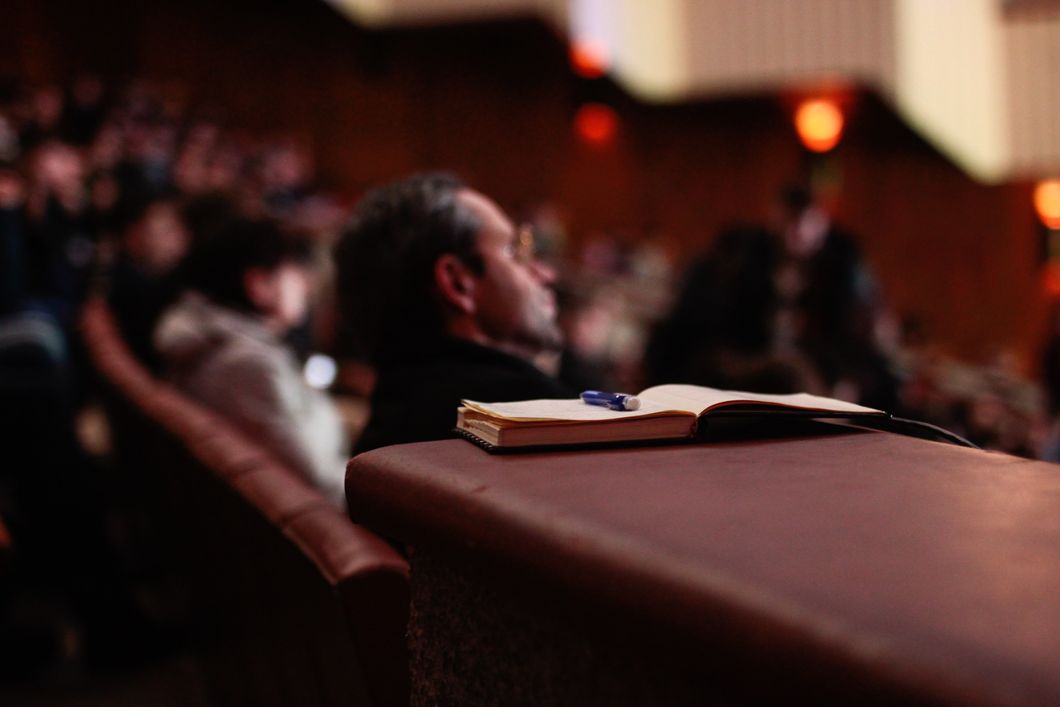Upon entering college, everything was daunting to me, especially because of my anxiety: there were tons of people walking in every direction, loud activities and tablers were at every corner, the campus was a maze, and I was all alone, not knowing one person out of the 22-thousand undergrads there. I was scared to leave my room, let alone find a seat in a crowded dining hall. Not only did crowds frighten me, but what people might have been thinking: "she looks so scared;" "that's a weird outfit—" the possibilities were endless. Suffering from anxiety has been very rough ever since I was little, and it still persists with me today: I'm usually uncomfortable in large group settings, I get super nervous when presenting something or having to confront someone, and I am tense in public. However, getting through my first year was a great relief and brought me a lot of peace for entering my second year.
There were times when I would sleep in too late and barely make it to class; and there were a few times when I slept through class. Regardless, the moments that stick with me involved being just a few minutes late to class and choosing to skip, because I was too afraid to be on the spotlight as I walked in late.
When you have anxiety like me, it's typical to feel like all eyes are on you, even when the attention is on something completely different. You may feel heat throughout your upper body and face, experience twitching in your arms and hands, and hear your heartbeat increase rapidly. Worse yet, it's not over when the attention fades (if there was any to begin with)—for me, the symptoms continue for at least 10 minutes, or however long I feel anxious or threatened. I say threatened because when I get flustered, I feel that I am being judged, as does one with anxiety. Now, imagine a classroom of about 30 students, just a few minutes in: quiet, motionless, attentive. Can you understand how I might feel, walking into class at that hushing moment, searching for a seat among 60 eyeballs staring in your direction? It is unnerving and seems impossible for someone with anxiety to perform.
The very seldom instances I have walked into class late were followed by inattentiveness and enduring self-consciousness: I am already drained from the symptoms of my anxiety and now have to force myself to focus and release all of the bad thoughts of walking in late. It is very hard, and I have gotten quite better at calming myself, but it is still there, and I will always have to fight the initial stigmas.
This is not supposed to be a negative story—I have improved tremendously since my first year and will continue to do so through remaining years. Anxiety is no joke, and people who have it should not be questioned but respected and given space, as they may be tackling some of those symptoms at any given time. Anxiety really gets you to think about yourself and your surroundings, which can be beneficial in some ways and unsettling in others. Taking the step forward (literally) and walking into class late is a slow and uncomfortable process, but each success leads one further to coexisting with their anxiety rather than letting it impact them and their life decisions.
















